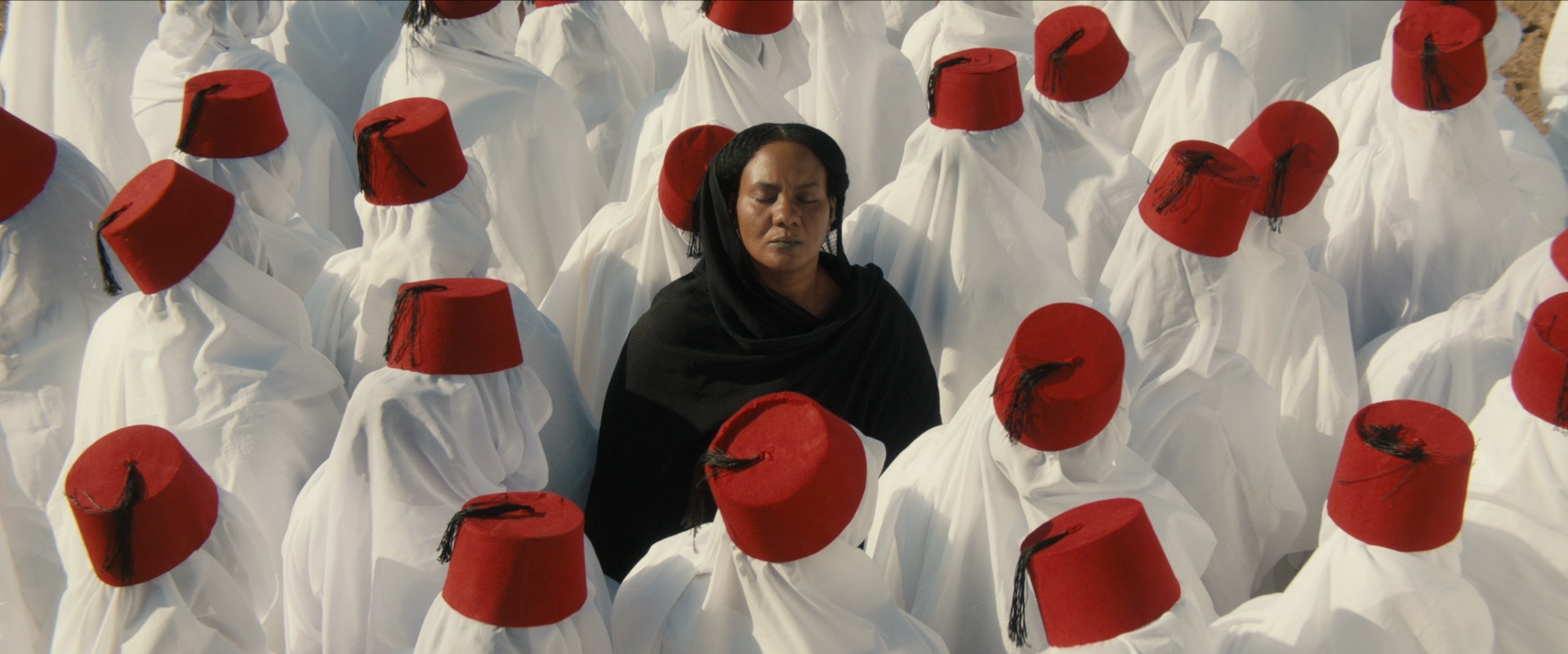Set in a remote Sudanese village where religion and prophecy are valuable currencies, You Will Die at Twenty beautifully examines misguided notions of faith. After giving birth to her first baby, Sakina (Islam Mubarak) visits the local Sheikh for a formal blessing. Instead of hearing promising words about the child’s bright future, she receives a dire omen: the boy will die on his 20th birthday.
Shockwaves of gossip spread as the entire village mints this premonition as tragic inevitability. Sensing the coming stress of their cursed family situation, her weak husband decides to leave and work abroad, promising to send money back as if that were appropriate compensation to excuse his betrayal. Almost immediately, Sakina’s sense of loss doubles, pushing her into a state of prolonged mourning for someone who has not yet died. She realizes rather quickly that raising her son alone will mean enduring years of isolation and alienation.
As Muzamil (Moatasem Rashid) grows from adolescent kid into a kind but quiet teenager, this sense of pre-determined fate dominates his life. Director Amjad Abu Alala avoids using magical surrealist imagery or melodramatic tropes to express the young man’s complicated predicament. The town’s ever-present judgment and pity is enough. Ultimately, You Will Die at Twenty tries to explore how the strong sway of religious foreboding can be subverted through worldly experience, knowledge, and logic.
Sulaiman (Mahmoud Elsaraj), who has just returned to the village after spending decades traveling the globe as a photojournalist, comes to embody those traits for Muzamil. “You think your village is the whole world,” he tells the distraught teen.
They strike up a friendship after the older man asks Muzamil’s shop owner boss for a delivery of contraband alcohol. When Sulaiman becomes aware of the curse that has been following Muzamil around, he introduces him to ideas and art that question the limited scope of village lore, including the power of cinema.
From its opening image of an animal carcass rotting in the sun, You Will Die at Twenty doesn’t shy from depicting death as a part of everyday Sudanese life. But what makes this particular take on the subject so interesting is how it reveals the constricting and suffocating nature of foreshadowing death in some absolute way. Whereas other films might treat such a revelation as freeing (see the great Queen Latifah film Last Holiday), here it’s presented as a subtly destructive force that crushes one’s identity and purpose.
More distressingly, Sakina and Muzamil are mostly abandoned by the Muslim clerics who’ve set this in motion, left to navigate and suffer through a life that began with an expiration date. Even the very possibility of true love gets crushed. Nevertheless, the young man manages to experience moments free of judgment and stress; possibly the only time we see Muzamil smile is while he’s watching projected 16mm footage of 1960s Khartoum on Sulaiman’s wall.
These images of modern society in motion feel like premonitions of their own to Muzamil, a personal mark of Cain with the power to fend off a fear that’s become so thoroughly ingrained in his life. Using the tone of its title as another subversive device, You Will Die at Twenty mires the viewer in a crippling feeling of certainty that was always just an albatross of someone else’s making. From this skewed vantage point, it’s very hard to see the possibility that maybe your solemn faith-based clairvoyants were wrong.
You Will Die at Twenty opens in Virtual Cinemas on January 22.

